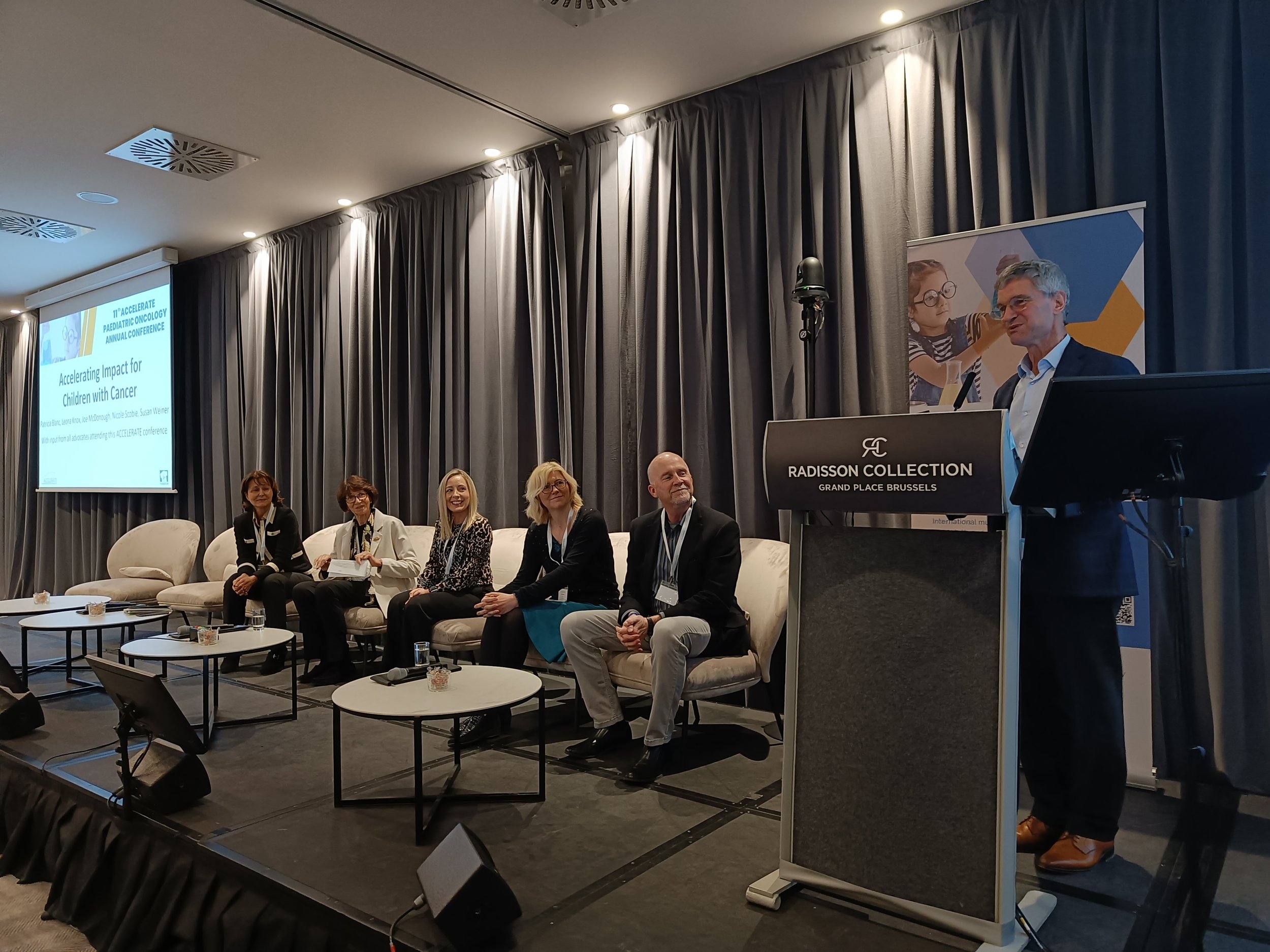International Pediatric Oncology Conference Highlights Role of Global Advocates
Image: Patient Advocate Panel / Source: ACCELERATE on Twitter (@ACCELERATE_cure)
At the 11th Annual ACCELERATE Conference, held this month in Brussels and virtually, a panel of childhood cancer advocates - including our founder Dr. Susan Weiner - detailed drug development and clinical issues that are important to parent and patient advocates.
Panel members explored the attributes of what makes an effective parent advocate, sharing the personal childhood cancer experiences that make them “unapologetically impatient and unrelenting” and acting as unconflicted stakeholders.
Panelists noted that professional skills and a willingness to fully participate in discussions of difficult issues makes parent advocates able partners in pediatric oncology drug development. One example of how advocates can take innovative approaches to difficult issues was presented as a parent-led workshop on the scientific and moral dilemma of randomizing hope in pediatric oncology Phase 3 trials. Workshop recommendations included specifying the timing of randomized clinical trials to have clinical equipoise of a trial’s two arms to preserve the buy-in of patients/parents and treating physicians. It was noted that quality of life and burden of treatment are as important as survival in determining the relative benefit of a trial.
Advocates went on to highlight the need to develop new ways to tighten preclinical and clinical academic-industry collaborations in order to increase chances of filing new drugs for pediatric oncology indications. They reasoned that their contribution of real-world experience is essential in every phase of developing a new therapy. Simultaneous development of companion diagnostics along with novel therapies also received attention so that appropriate drugs could reliably treat selected childhood cancers.
Other important issues mentioned included: the need to learn from data from children exposed to novel therapies off label and off protocol; the ethical rationale for tissue sampling; and the clinical and real-world implications of germline findings. Reducing the cost of novel therapies and increasing adequate reimbursement by health authorities for testing, such as genomic sequencing, were emphasized as ways to ensure greater patient access.
“Parent advocates have become sophisticated partners in thinking about how the process of pediatric oncology drug development might become more efficient and result in medicines that can successfully treat our children,” said Dr. Weiner, a member of the ACCELERATE Steering Committee and one of the panelists in Brussels. Additional panelists were Joe McDonough (founder of the Andrew B. McDonough B+ Foundation) and European advocates Patricia Blanc (Imagine for Margo), Leona Knox (Solving Kids Cancer) and Nicole Scobie (Zoe for Life).
ACCELERATE, a nonprofit organization, addresses overarching issues in the development of new anticancer medicines for children and adolescents. ACCELERATE sets new standards in trying to solve some of the most vexing challenges to pediatric oncology drug development by conducting all of its activities through multi-stakeholder collaboration, including clinical researchers, biopharmaceutical representatives, regulators, and parent/patient advocates.
ACCELERATE will hold a Pediatric Study Forum on April 3-4 in Boston to evaluate potential therapies for a critical molecular pathway in childhood cancers. Children’s Cancer Cause is helping to support the meeting and will be in attendance. Be sure you’re subscribed to blog updates so you don’t miss our coverage of the upcoming meeting.

